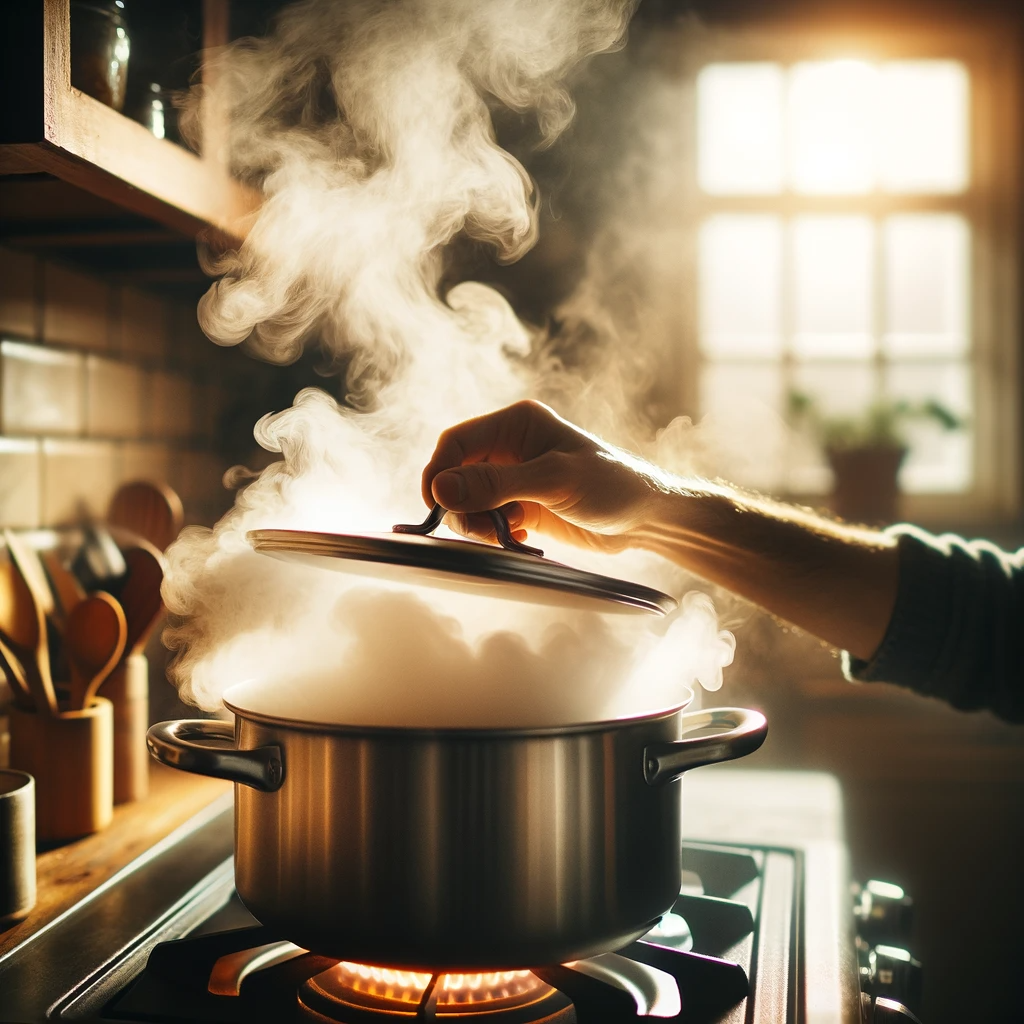Steam
Definition
Steam refers to the gaseous state of water, especially when produced by evaporation at a temperature above boiling point or by sublimation at a temperature below freezing point.
Parts of Speech
- Noun
- Verb
Pronunciation
- American English
- IPA Pronunciation: /stim/
- Respelling: STEEM (with "STEEM" rhyming with "team" and "seem"
- British English
- IPA Pronunciation: /stiːm/
- Respelling: STEEM (similar to American English, with "STEEM" rhyming with "team" and "seem")
In both dialects, "steam" is pronounced with a long "ee" sound, as in "team" or "seem." The pronunciation of "steam" is consistent between American and British English, clearly reflecting the word's straightforward phonetic structure.
Etymology
The word "steam" comes from the Old English word "steam," which means vapor, fume, or emanation. It's traced back to the Proto-Germanic root *staumaz. The Indo-European root *taeu-, which means to melt or thaw, also contributes to the etymology of steam.
Derivatives
- Steamer
- Steamship
- Steamy
- Steamboat
- Steamroll
Synonyms
- Vapor
- Mist
- Fume
Antonyms
- Ice
- Solid
- Liquid
Usage
The term "steam" is extensively used in various contexts, such as cooking, heating, and powering engines. It is also used metaphorically to describe energy, momentum, or emotions reaching a heated or critical point.
Related Terms
- Evaporation
- Condensation
- Sublimation
Detailed Definition
Noun
- Water Vapor: The gaseous phase of water which is formed when water boils or evaporates.
- Example: The kettle emitted a whistling sound as the water inside transformed into steam.
- Power or Energy: Used metaphorically to describe a driving force or energy.
- Example: The project lost steam after the initial funding was exhausted.
Verb
- To Cook: To cook food by continually exposing it to steam.
- Example: She decided to steam the vegetables to retain their nutrients.
- To Emit Steam: To give off steam or vapor.
- Example: The hot springs steamed in the cool morning air.
steam



🇨🇳 Mandarin (Chinese)
- 蒸汽 (zhēngqì) [steam, vapor]
- IPA Pronunciation: /ʈʂəŋ˥ t͡ɕʰi˥˥/
- Respelling: zheng-chee
🇮🇳 Hindi
- भाप (bhāp) [steam]
- IPA Pronunciation: /bʱaːp/
- Respelling: bhaap
🇪🇸 Spanish
- vapor [steam, vapor]
- IPA Pronunciation: /baˈpoɾ/
- Respelling: vah-POR
🇫🇷 French
- vapeur [steam, vapor]
- IPA Pronunciation: /va.pœʁ/
- Respelling: vah-PUHR
🇦🇪 Modern Standard Arabic
- بخار (bukhār) [steam, vapor]
- IPA Pronunciation: /buːˈxaːr/
- Respelling: boo-KHAAR
🇧🇩 Bengali
- বাষ্প (bāṣpa) [steam]
- IPA Pronunciation: /baːʃp/
- Respelling: baa-shp
🇷🇺 Russian
- пар (par) [steam, vapor]
- IPA Pronunciation: /par/
- Respelling: par
🇵🇹 Portuguese
- vapor [steam, vapor]
- IPA Pronunciation: /vɐˈpoɾ/
- Respelling: vah-POR
🇮🇩 Indonesian
- uap [steam, vapor]
- IPA Pronunciation: /u.ap/
- Respelling: ooh-ap
🇩🇪 German
- Dampf [steam, vapor]
- IPA Pronunciation: /dampf/
- Respelling: dampf
🇯🇵 Japanese
- 蒸気 (jōki) [steam, vapor]
- IPA Pronunciation: /d͡ʑoː.ki/
- Respelling: jo-kee
🇻🇳 Vietnamese
- hơi nước [steam, vapor]
- IPA Pronunciation: /hwi˧˥ nwək˧˧/
- Respelling: hwee nwuk
🇰🇷 Korean
- 증기 (jeung-gi) [steam, vapor]
- IPA Pronunciation: /t͡ɕʌŋ.gi/
- Respelling: jeung-gee
🇹🇷 Turkish
- buhar [steam, vapor]
- IPA Pronunciation: /bu.haɾ/
- Respelling: boo-HAHR
🇵🇰 Urdu
- بخار (bukhār) [steam, vapor]
- IPA Pronunciation: /bʊˈxaːr/
- Respelling: boo-KHAAR





